Cecil Travis
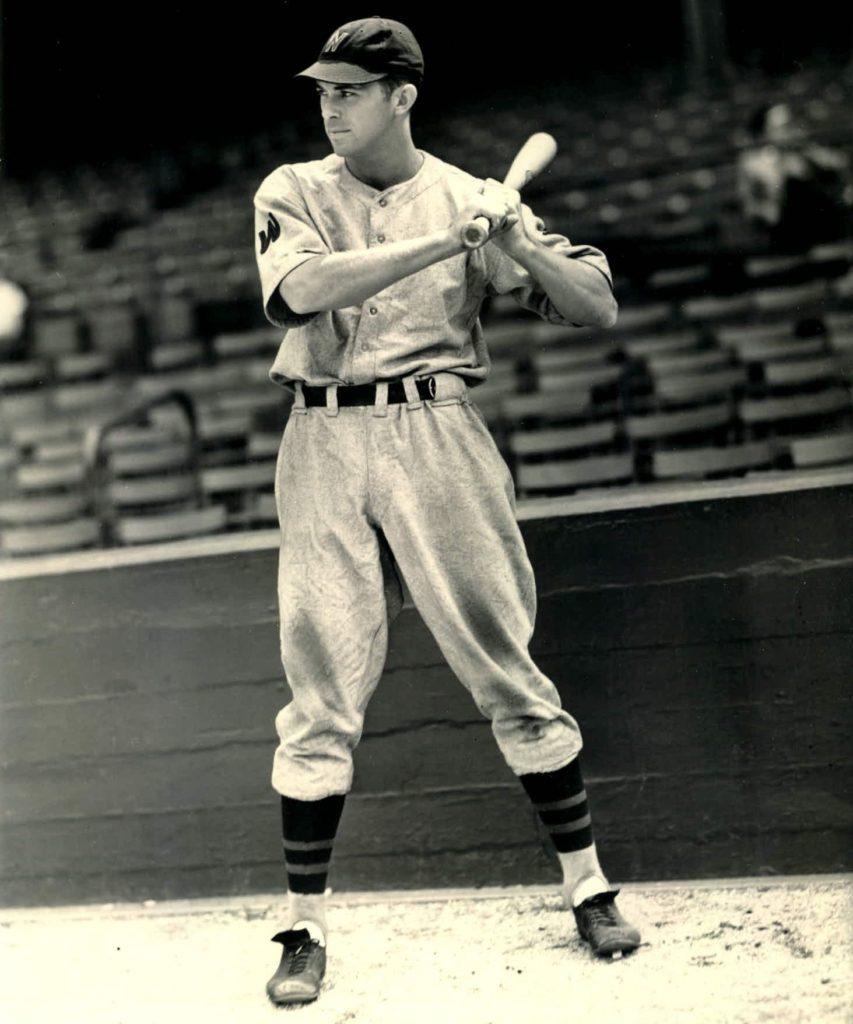
| Birthdate | 08/13/1913 |
| Death Date | 12/16/2006 |
| Debut Year | 1933 |
| Year of Induction | |
| Teams | Senators |
| Positions | Shortstop, Third Base |
Cecil Travis was on a path to the Hall before World War II. From 1933-41 he hit .327. Then he missed 4 years at war then hit .241 from 1945-47.
Leave a commentIn the collection:
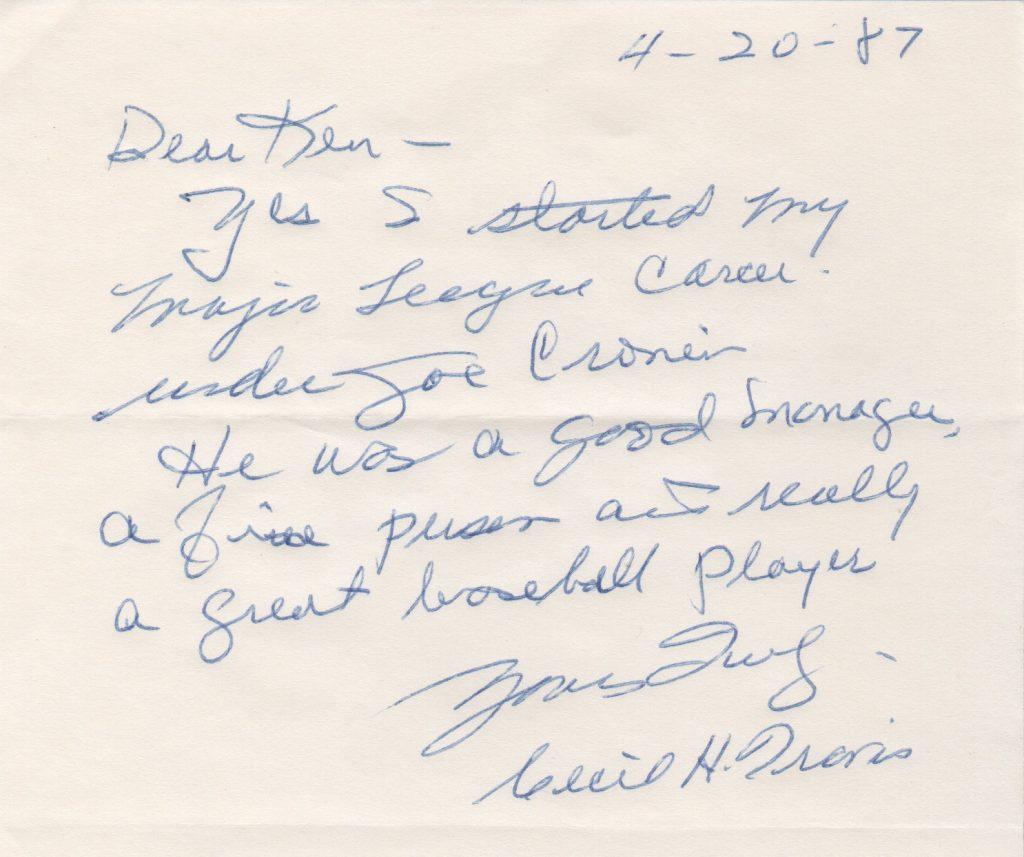
Cecil Travis' first manager in the big leagues was Hall of Fame shortstop Joe Cronin
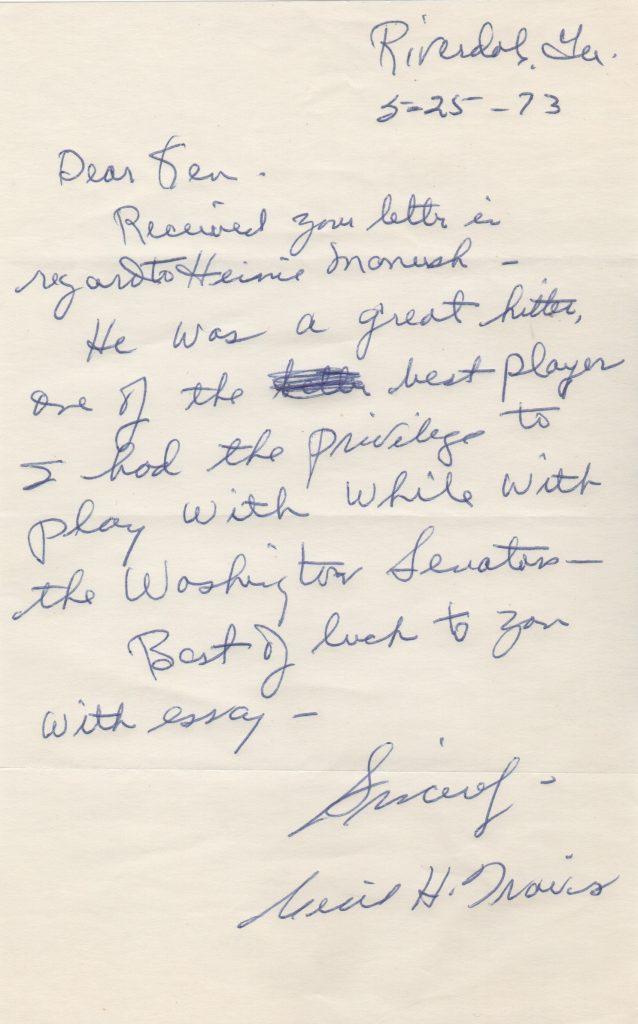
Travis broke in with a Senators team that had four Hall of Fame position players
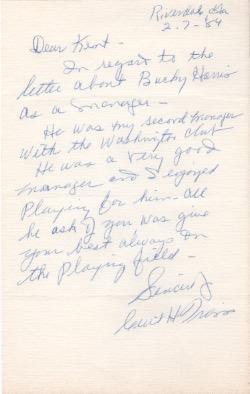
Cecil Travis thrived with the Senators under Hall of Fame manager Bucky Harris
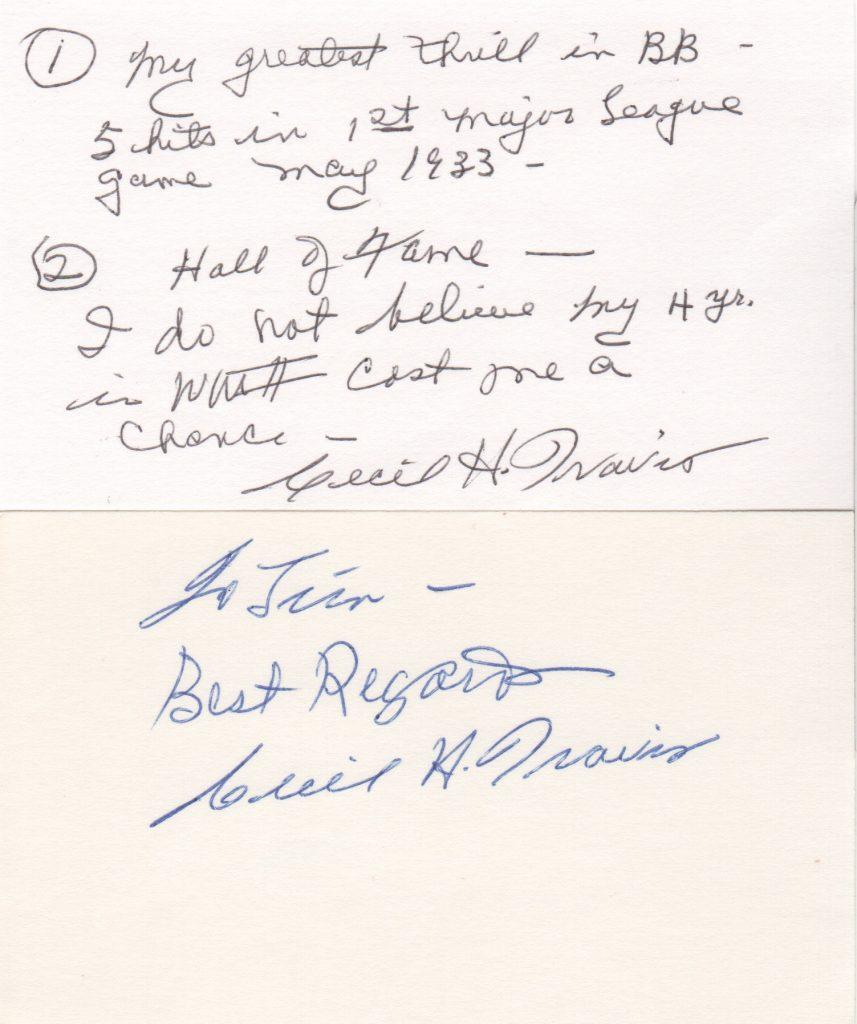
Travis was on his way to Cooperstown until he left baseball to fight in World War II
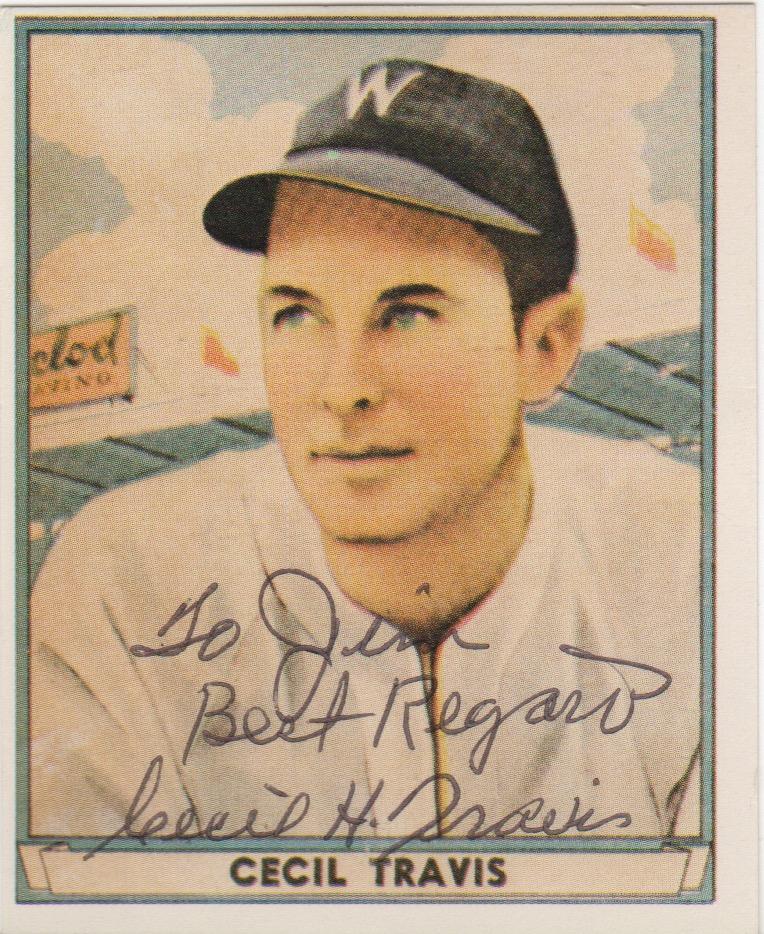
Cecil Travis' finest season came in 1941 - he led the American League in hits and hit .359
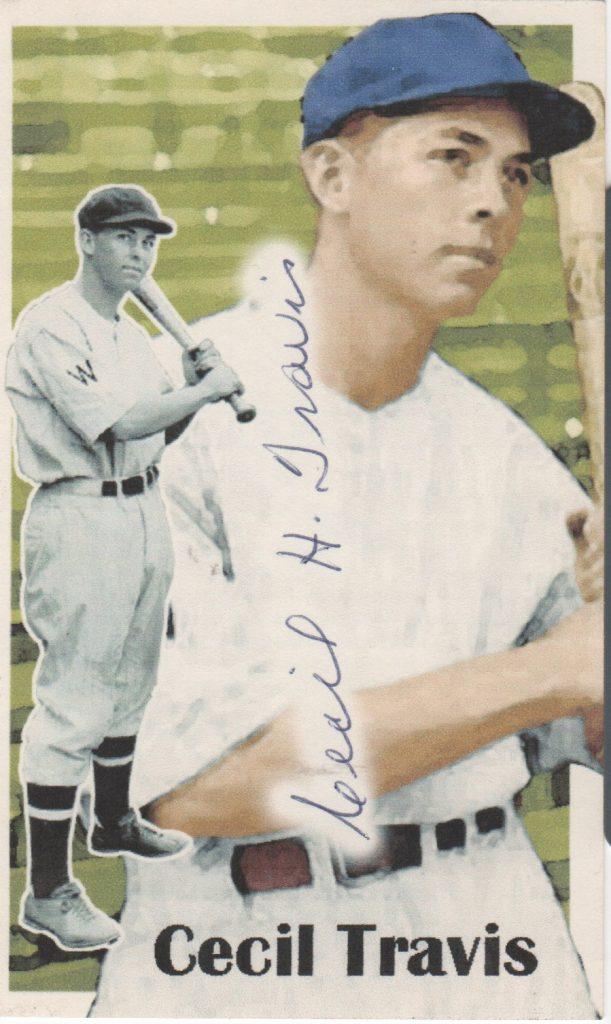
Cecil Travis career can be divided into two parts, before he left for WWII and after
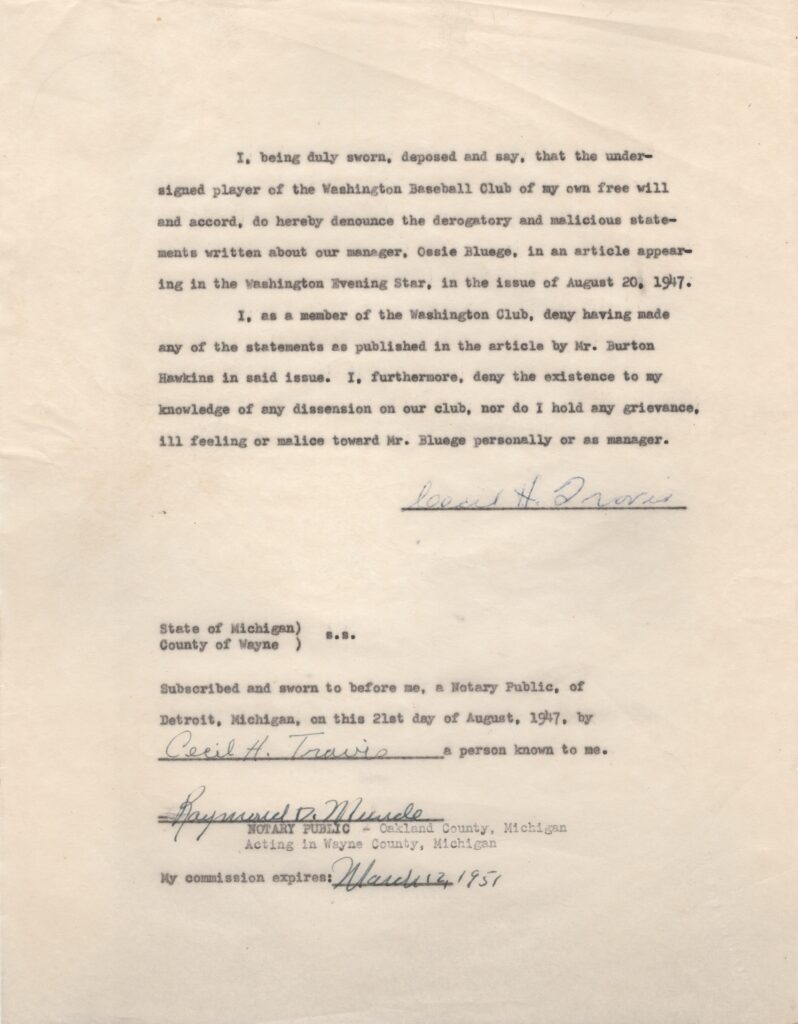
Cecil Travis' final big league season came in 1947
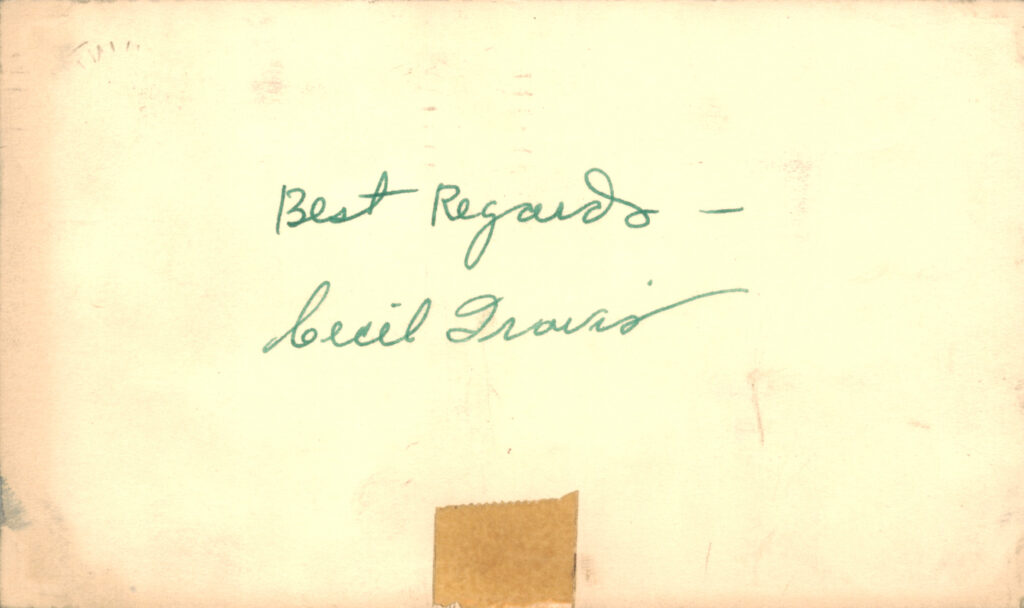
The Senators held "Cecil Travis Night" on 8/15/47 at Griffith Stadium
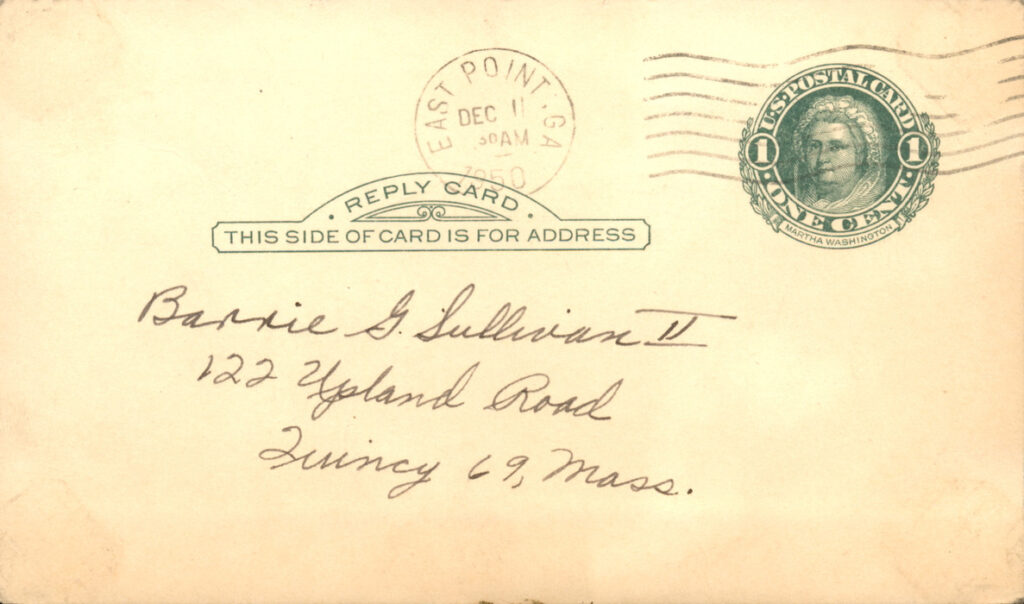


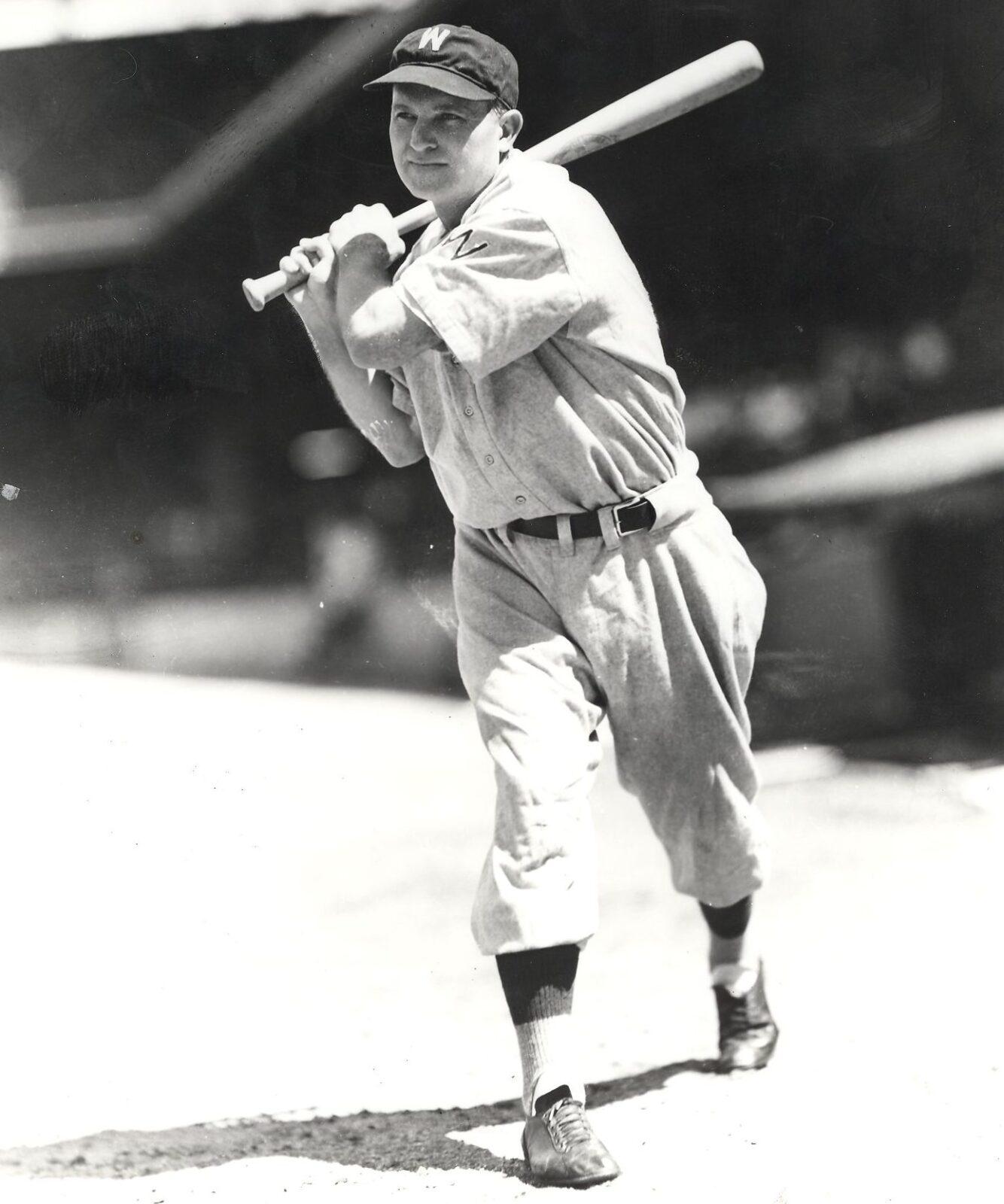

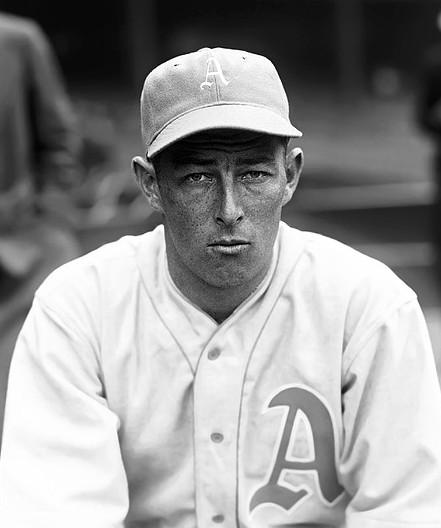

Mr. Travis was a family friend. I grew up in Riverdale, GA. I talked with him by phone a few years before he passed. Ted Williams said he had one of the best swings in baseball. Dad played a little bit of pro baseball with the Lookouts. Mr. Travis said Dad had one of the best swings in baseball. Thanks for sharing this page. Great pics! I believe he should be in the HOF.
What a great story, Vernon! Thanks for sharing.
Our local heroes are who we hold closest to our hearts. I had many from the small town of Riverdale, GA. Most had no fanfare. It’s a repeating theme across America in the ‘50s and the years beyond.